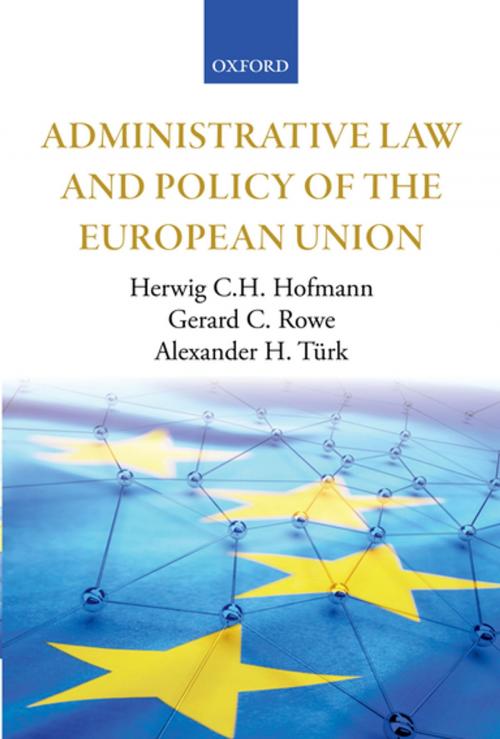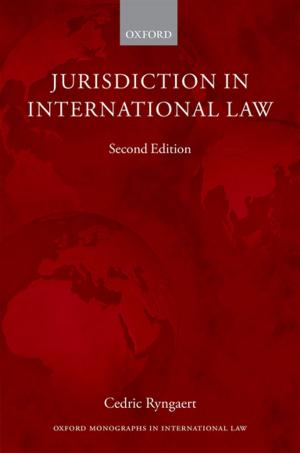Administrative Law and Policy of the European Union
Nonfiction, Reference & Language, Law, Constitutional, Social & Cultural Studies, Political Science| Author: | Herwig C.H. Hofmann, Gerard C. Rowe, Alexander H. Türk | ISBN: | 9780191021558 |
| Publisher: | OUP Oxford | Publication: | October 27, 2011 |
| Imprint: | OUP Oxford | Language: | English |
| Author: | Herwig C.H. Hofmann, Gerard C. Rowe, Alexander H. Türk |
| ISBN: | 9780191021558 |
| Publisher: | OUP Oxford |
| Publication: | October 27, 2011 |
| Imprint: | OUP Oxford |
| Language: | English |
Administrative Law and Policy of the EU provides a comprehensive analysis of the administration of the European Union and the legal framework within which that administration operates. The book examines the multifarious approaches, techniques, and structures of public administration in order to systematise and assess the solutions they offer to political, social, and economic problems. The legal framework of administration is examined from the standpoint of how it meets the demands of specific policy objectives established by democratically accountable decision-makers. Administrative law structures and many of its underlying principles have developed in an evolutionary and isolated manner in each policy area. While aware of the diversity of specific areas, this book takes an overarching approach, setting out the common rules and principles that constitute the general body of EU administrative law. By integrating the disciplines of political and administrative science, and administrative law, the book offers a rich explanation and critique of the complex executive framework of the EU.
Administrative Law and Policy of the EU provides a comprehensive analysis of the administration of the European Union and the legal framework within which that administration operates. The book examines the multifarious approaches, techniques, and structures of public administration in order to systematise and assess the solutions they offer to political, social, and economic problems. The legal framework of administration is examined from the standpoint of how it meets the demands of specific policy objectives established by democratically accountable decision-makers. Administrative law structures and many of its underlying principles have developed in an evolutionary and isolated manner in each policy area. While aware of the diversity of specific areas, this book takes an overarching approach, setting out the common rules and principles that constitute the general body of EU administrative law. By integrating the disciplines of political and administrative science, and administrative law, the book offers a rich explanation and critique of the complex executive framework of the EU.















